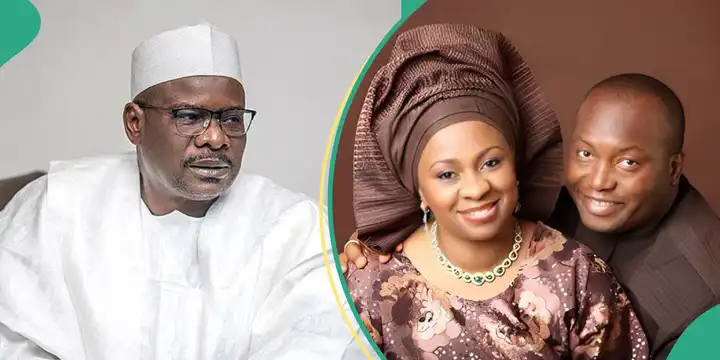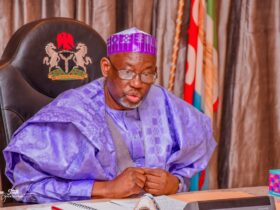Senator Ifeanyi Ubah’s contributions are acknowledged, but should his widow automatically inherit his position? Is leadership a family-right, or should it be based on the capacity to serve and the will of the people?
The recent plea by Senator Ali Ndume for the widow of late Senator Ifeanyi Ubah to replace him as the senator representing Anambra South Senatorial District reignited the debate on political dynasties in Nigeria.
Senator Ali Ndume, representing Borno South, had called on the Senate to allow the widow of the late Senator Ifeanyi Ubah to succeed him as the representative for Anambra South Senatorial District.

Ndume made this appeal during a valedictory session held in honor of the late Senator Uba who represented Anambra South senatorial district and died in July at the age of 52.
“What I want to appeal to you, Mr President, is that we keep the spirit and aspirations of Ifeanyi alive. I appeal to you my distinguished colleagues to support the idea of his family having a spiritual representative here in this chamber. His wife, fortunately, is around 50 years old and has been a wonderful support system to him. This will ensure continuity and honor for the Anambra South Senatorial District, ” Ndume begged.
While the gesture by Senator Ndume might seem compassionate, it reflects a troubling trend of political dynasty that is gradually getting deeply ingrained in Nigeria’s political system.
READ ALSO: Peter Obi Donates N60 Million to University, School of Nursing
Political dynasties is the practice of passing political power within families.
This pattern of recycling political power among families is one of the major reasons Nigeria continues to grapple with underdevelopment.
It is common for relatives, such as wives and daughters, to take over positions held by deceased relatives as seen in cases like Chuba Okadigbo and Iyabo Obasanjo. Similarly, in the judiciary, family influence often plays a role in judicial appointments
Across the country, political offices have become the private estates of a few families. From the Sarakis in ‘Kwara’ to the Tinubus in ‘Lagos and Aso Rock’.
The Saraki political dynasty had long dominated politics in Kwara State, influencing key decisions on political appointments. The dynasty’s patriarch, Dr. Abubakar Olusola Saraki, was widely known for his inclusive approach to politics.
His counterpart Bola Tinubu appears to be grooming his sons, Seyi and Yinka Tinubu, as political successors. Seyi, the prominent face of the dynasty, is now being joined by Yinka. Both sons featured prominently during Tinubu’s official trip to Qatar on March 2, where they were introduced ahead of ministers despite holding no official positions.
These “Political Dynasties” have entrenched failed policies, unchecked corruption, and poor service delivery in Nigeria, denying deserving individuals with fresh ideas the chance to lead.
Nigerians deserve leaders who will champion their aspirations, not individuals whose primary credential is their family name. Until this change happens, the nation will remain trapped in a cycle of poor governance, unable to harness its full potential.
Follow the Parallel Facts channel on WhatsApp: https://whatsapp.com/channel/0029VaCQSAoHgZWiDjR3Kn2E








Leave a Reply